Student ticket distrubution isn’t all the same, Syracuse is considering a change
Syracuse, NY (NCC News) — When it comes to going to college, few things emulate the student experience like a football or basketball game day. Being part of 50,000+ fans inside a football stadium is a feeling that can’t be emulated anywhere. Sporting events are part of the experience for college students. However, college sports is a lucrative business and that has left universities to handle ticket distribution for students in their own ways. Some do it for monetary reasons, some to create an atmosphere unlike any other. For example, the University of Tennessee and North Carolina State have completely different systems to the one at Syracuse University. Both have great college and local fan bases but the approaches to student ticketing is different for these schools.
TRANSCRIPT
NICHOLAS WALEY: This is the JMA Wireless Dome at Syracuse University. Fun fact, football and basketball both play inside this stadium and that is the only school at the Division 1 level that does that. Coincidentally enough, football and basketball are the only two sports where you have to pay extra as a student. The other 18 Division 1 programs, all you need, is one of these. However, that might change. For For at Tennessee and NC State, the university actually tracks students’ phone locations to see how many sporting events they have attended so they collect enough points to attend the big football games on Saturdays. This system might be coming to Syracuse.
BRAEDEN CHEVERIE-LEONARD: It’s something we have discussed as a board in the past years. The way we were going to brand it was a passport, so getting a stamp for other games you’ve gone to for our less popular or unrevealed sports. That was something transparently athletics looked at and said we love this idea.
NICHOLAS: The question really is whether or not these free events hold their value. In my opinion, I still think they do. For example, Syracuse men’s soccer when they faced Stanford last week, there were over 2,000 fans at SU Soccer Stadium and when women’s soccer played number one Virginia just the other day, there were over 1,200 fans there. So will there be a change in the short term? I don’t think so, but I do think some other sports could receive a little bit of love and that’s where the point system could really come into effect.
TENNESSEE’S T CREDITS
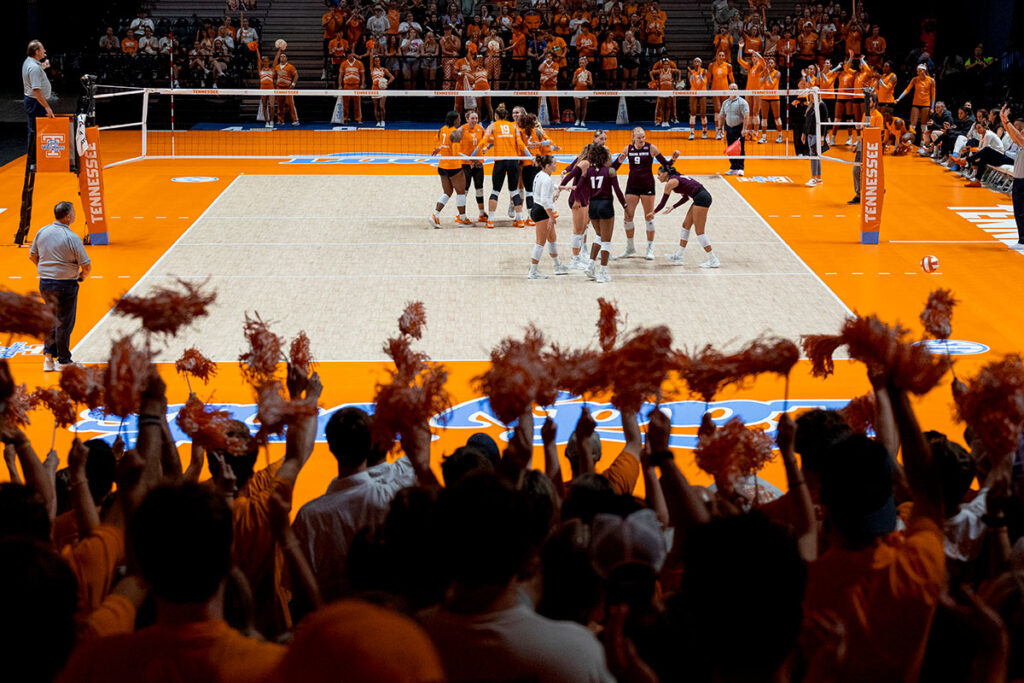
At the University of Tennessee, getting a ticket to see the Volunteers play football isn’t as simple as logging into Ticketmaster and adding the ticket to your Apple Wallet. Tennessee uses a priority system which incentivizes students to attend other athletic events that may not get as many fans normally. These sports include volleyball, soccer, or softball. The more “T Credits” you earn, the more likely you’ll get a ticket to watch the Vols at Neyland Stadium.
This model has its benefits. By making students attend multiple sports, Tennessee’s other athletic programs get a boost in attendance and likely atmosphere. Women’s sports, Olympic sports, and the teams that are non-revenue, benefit the most from an increased student attendance. These events are also free for students anyways so there is no added cost to student attendees other than their time.
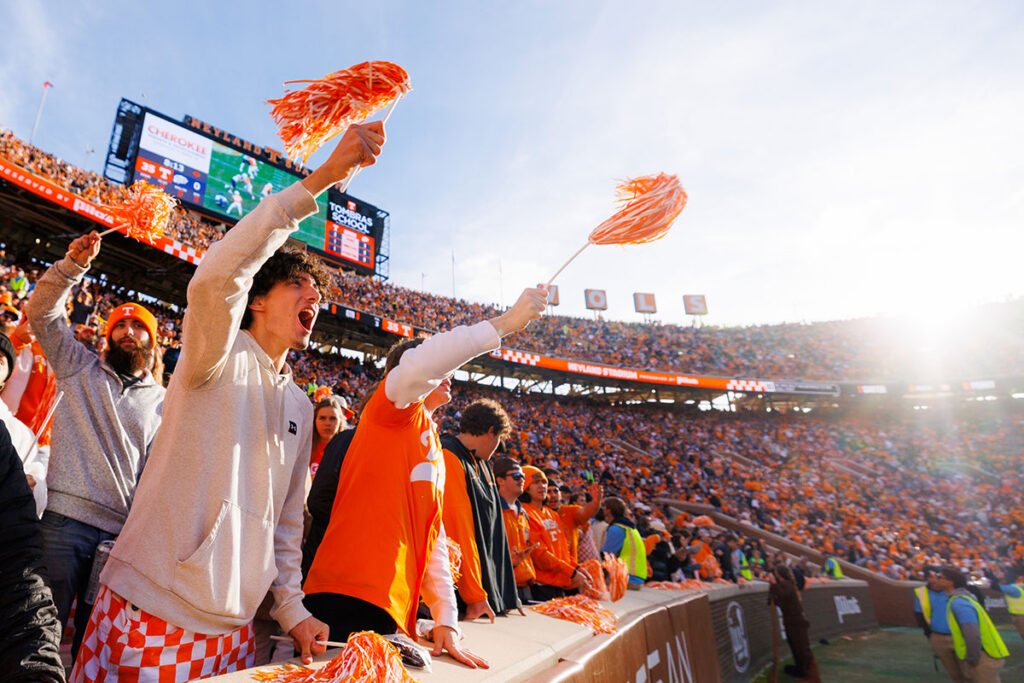
However, there are negatives to the system. Students at UT see the requirement as an unnecessary extra thing that they have to get through, especially if they attend the school specifically with football in mind. Attending another game just to earn access to the game can lose the authenticity of the event.
Students have to juggle academics, jobs, and other extracurriculars in college and a system like this isn’t accessible to everyone because many may not be able to attend enough non-rev games. However, this model ensures that the demand for football is always met and it helps the all of Tennessee athletics rather than Football and Basketball being the sole focus for students.
WILL SYRACUSE ADOPT THIS?
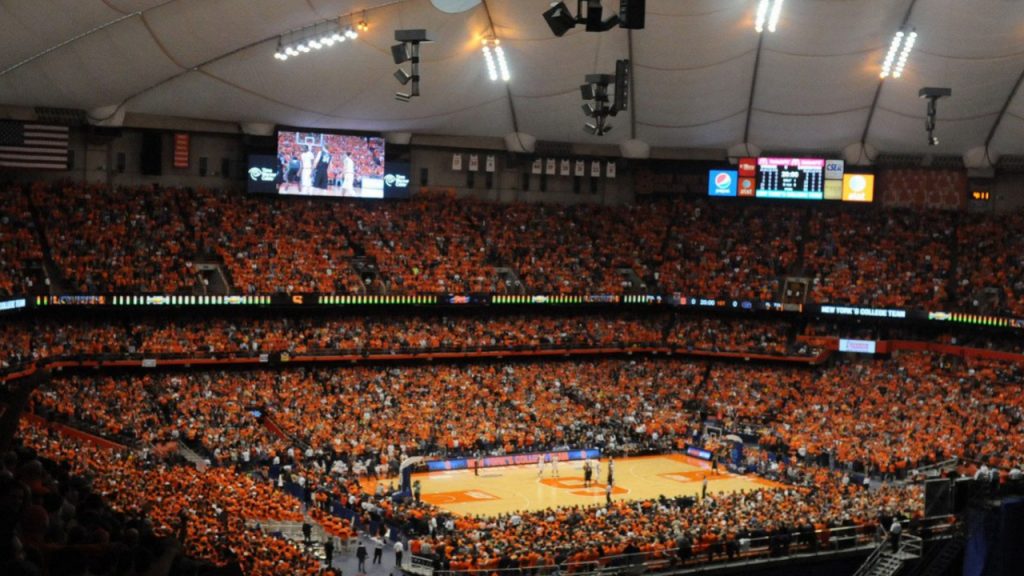
At Syracuse University, students receive free admission to nearly all sporting events, with the only exceptions being football and men’s basketball. Both sports are also the most convenient because the JMA Wireless Dome is in the heart of SU’s campus. These two sports are the only ones which require tickets for students and just like Tennessee, students can just show up to other sports and enter for free. Men’s soccer, volleyball, and field hockey are just to name a few of these sports which are free to enter.
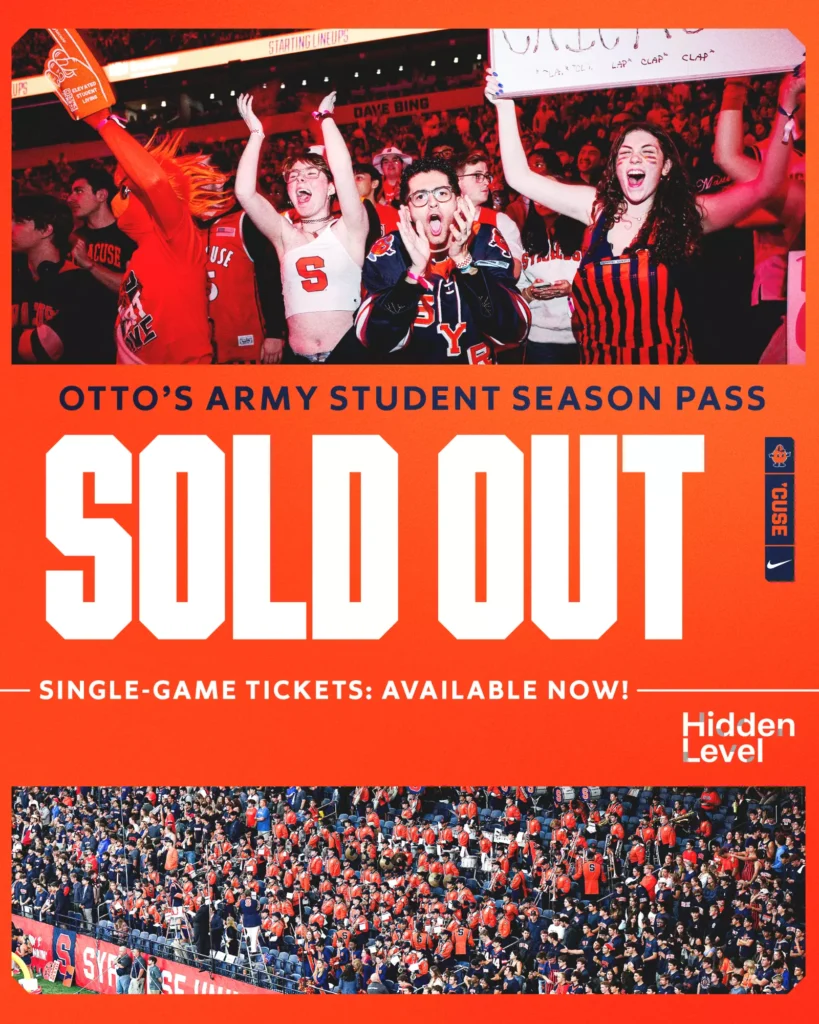
However, that might not be the case forever. Braeden Cheverie-Leonard, the Director of Public Relations for Otto’s Army said “With NIL and changes to college football, a points system for student tickets is something that we’ve discussed and something we want to bring up to athletics again.”
He said it would be a “passport system” in which students would get “stamps” based on how many other events they attend. With a record number of students enrolling every year, and less seats now inside the JMA wireless Dome because of the new chairback seats, the demand for football and basketball could go up. The passport system could become a requirement.
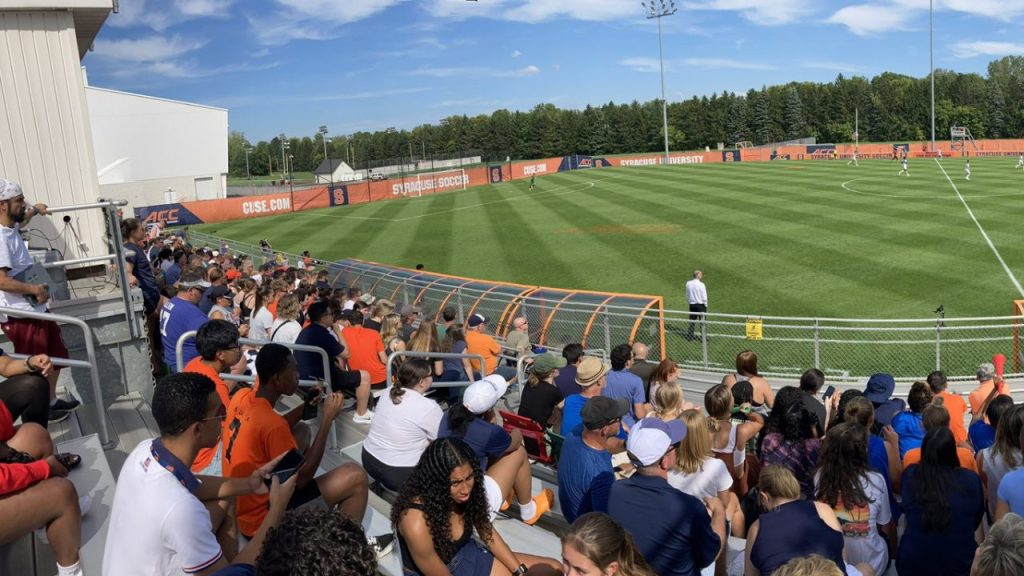
Some of the non-revenue sports at Syracuse are still doing well attendance wise. Syracuse Men’s and Women’s soccer both had season high attendances just last week. But, Field Hockey and Volleyball could get a little bit of love. Especially with Volleyball Coach Bakeer Ganesharatnam complaining about home crowds not being engaged in the game. That’s where this system would thrive.
What’s the future?
At the end of the day, any successful ticketing system should depend on students. The reality is, universities could look to profit as much as possible.
Braeden Cheverie-Leonard mentioned how on Syracuse Men’s Soccer’s national championship run, the free tickets turned into “free for first 200 students.” He added that “If the NCAA and Syracuse see dollar signs like they did for Syracuse Soccer in 2022, who knows with NIL what could happen”.
Universities should look to balance both. Football and basketball will always have a demand, but a good college athletics culture comes from support from the entire university. Whether through Tennessee’s incentive system or the free model Syracuse has now the goal should be the same: to help their teams win.
